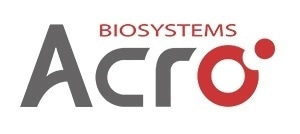A novel coronavirus hit the human population in December 2019, causing a worldwide pandemic from which we are still recovering. Although vaccines seem initially successful, it is still important to develop new approaches and tools to combat the evolving SARS-CoV-2 contagion.
The recent collaboration established by Professor Michael Wallach, Director of the Centre for Innovative Medical Research and professor at the University of Technology, Sydney, Australia, is one team currently being supported by ACROBiosystems to help find novel ways to protect people from SARS-CoV-2 infective attacks.
Professor Wallach is the Director of SPARK Oceania, part of the SPARK global consortium, an organization that promotes medical research that benefits patients through a mentoring and support program for aspiring researchers, innovative ideas, and seed funding.
He has a background in both academic and industrial science with over 30 years of experience in virology and applied and basic molecular parasitology and is regarded as an expert in vaccines and infectious diseases.
Professor Wallach is looking at ways of combating SARS-CoV-2 variants like the UK and South African strains by using antibodies obtained from chicken eggs and formulated into lozenges to act as the first line of defense against COVID by directly protecting the nasopharyngeal tract.
His work is being carried out in Le Center, Minnesota, USA, in collaboration with Camas Inc. Animal Agriculture Company. Camas’ experience with coronaviruses comes from their work with how these viruses affect veterinary medicine.
It is possible to rapidly produce chicken antibodies at a low cost anywhere in the world, which is one of the advantages of this method.
Additionally, lozenges act as a passive auto-administrated blockade in order to catch the virus prior to entering or exiting the body by immobilizing SARS-CoV-2 and inhibit viral bonding to the ACE2 receptor. Nasal formulations that also block viral entry can be combined with this approach.
Allergy disorders, influenza, Respiratory Syncytial Virus (RSV), and rhinosinusitis are some of the illnesses that have been combated by successfully implementing nasopharyngeal immunotherapies directly, making use of many types of drugs and biologics as the active therapeutic agent.
Nasal immunotherapies have a proven versatility, making them a fertile ground for opportunities for research, such as is being done by Professor David L. Brody’s team at NIH’s National Institute of Neurological Disorders and Stroke (NINDS).
Brody’s team utilized ACROBiosystems products as a method to prevent infections by generating llama nanobodies against the SARS-CoV-2 spike protein.
Dr. Brody’s research suggests that nanobodies could remain effective after inhalation.
His research made use of the small size of nanobody fragments (12-15 kDa single-domain) that showed superior properties such as ease of generation, low immunogenicity, high affinity to a broad spectrum of epitopes and chemical stability; they also are initially effective in an infection relevant SARS-CoV-2 virus model.
Antigens and antibodies currently available from the ACROBiosystems catalog can be used to effectively develop novel biologic-based therapeutic applications, as shown by these results.
About ACROBiosystems
ACROBiosystems is a cornerstone enterprise of the pharmaceutical and biotechnology industries. Their mission is to help overcome challenges with innovative tools and solutions from discovery to the clinic. They supply life science tools designed to be used in discovery research and scalable to the clinical phase and beyond. By consistently adapting to new regulatory challenges and guidelines, ACROBiosystems delivers solutions, whether it comes through recombinant proteins, antibodies, assay kits, GMP-grade reagents, or custom services. ACROBiosystems empower scientists and engineers dedicated towards innovation to simplify and accelerate the development of new, better, and more affordable medicine.
Sponsored Content Policy: News-Medical.net publishes articles and related content that may be derived from sources where we have existing commercial relationships, provided such content adds value to the core editorial ethos of News-Medical.Net which is to educate and inform site visitors interested in medical research, science, medical devices and treatments.